How Dr Noeleen Heyzer Continues to Empower Women, Uplift Communities
September 28, 2021
IN BRIEF | 4 min read
-
Dr Heyzer’s meteoric rise within the UN is an inspiration for many. As the first woman to serve as the Executive Secretary of the Economic and Social Commission for Asia and the Pacific, she played a critical role in building the economic and social foundations for inclusive and sustainable development.
-
For her efforts in improving the lives of women and promoting peace and justice, Dr Heyzer was also nominated for the Nobel Peace Prize in 2005 and has received the NUS Eminent Alumni Award in 2011, and the NUS Distinguished Arts and Social Sciences Alumni Award in 2017.
-
Former Singapore Minister for Foreign Affairs, Mr George Yeo, who was the Guest of Honour at the recent event for the launch of Dr Heyzer's memoir, commended Dr Heyzer for being an exceptional woman, and for connecting Singapore to the world and helping make Singapore what it is today.
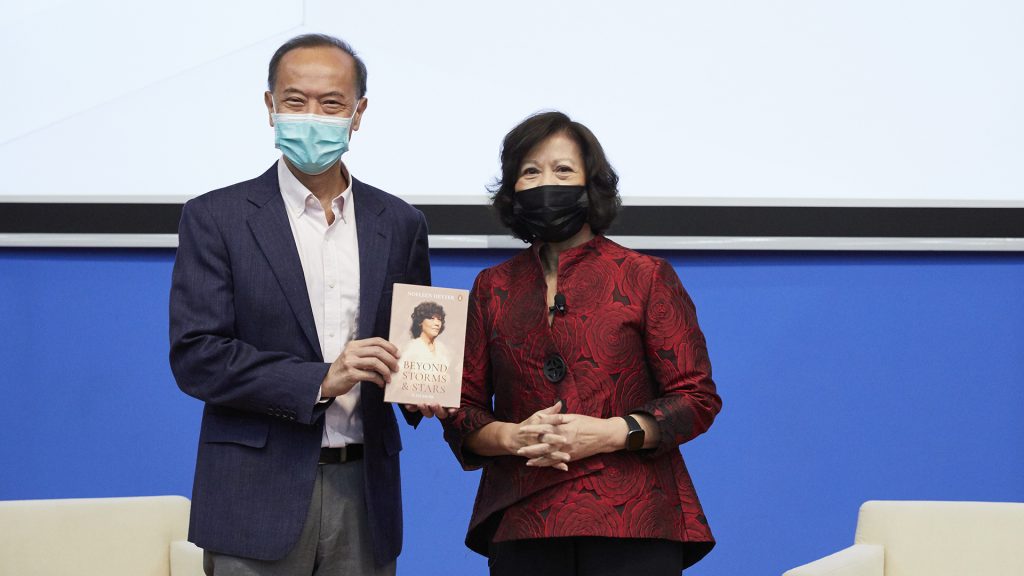
Days after Afghanistan fell to the Taliban, Dr Noeleen Heyzer was at ground zero, assisting with international evacuation efforts amid the chaos.
Her team secured three planes and had a mission to evacuate 900 people comprising women, men with families, human rights defenders and at-risk individuals. But their mission did not go as planned.
“One (plane) left with about 51 people, the others left with three people. And the rest were all left behind,” shared Dr Heyzer who was the highest-ranking Singaporean in the United Nations (UN) system and a former Nobel Peace Prize nominee. She is currently a member of the UN Secretary-General's High-Level Advisory Board on Mediation.
“Believe me, it was so heartbreaking because we've managed to bring people to the airport, but we couldn't get through (the gates). And some of the people were just so desperate – they swam through the canals.”
Her anguish intensified as the coup by Taliban militants had unravelled global efforts, including her personal involvement, to improve governance and elevate women in the country over the past 20 years.
In her previous roles in the UN, she helped women in Afghanistan gain equal recognition that opened doors to education opportunities, higher-level jobs, and greater participation in parliament.
“Now, all that is being lost…But women are not giving up,” said the energetic 73-year-old at a fireside chat hosted by NUS on 24 Sep, where she spoke about the various challenges confronting the world.
The event was held in celebration of her newly launched memoir, Beyond Storms and Stars, which recounts how she rose from underprivileged circumstances in post-war Singapore to become a trailblazer of women’s global leadership at the UN.
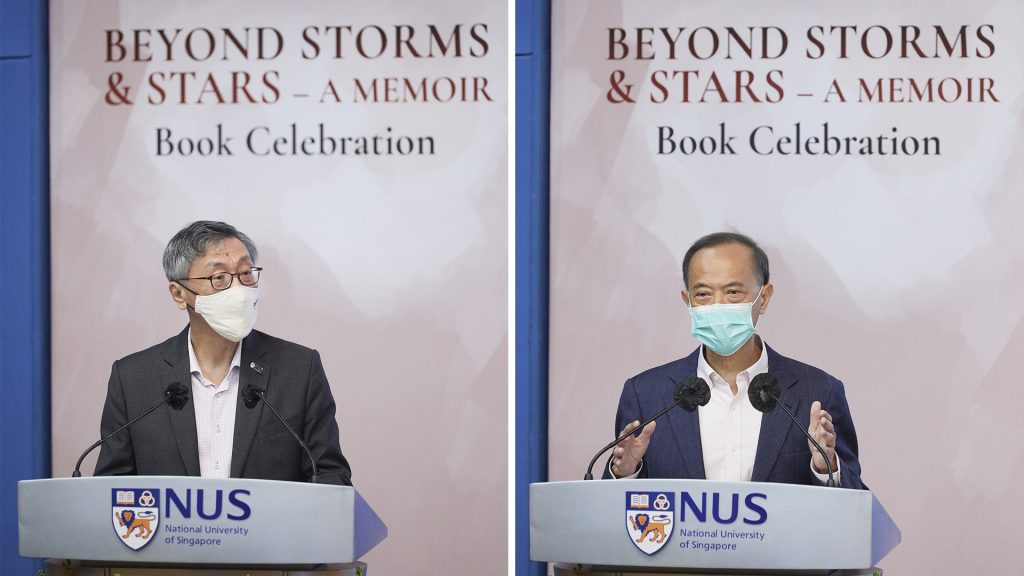
In his welcome remarks, NUS President Professor Tan Eng Chye lauded her tireless dedication in uplifting communities worldwide. “Dr Heyzer has been a lifelong champion of women’s rights, and among the early and leading proponents of sustainable development,” he noted.
"As a senior leader in the UN, she both witnessed and supported the rapid development of Asia, and has consistently advocated for equitable outcomes, and for shared prosperity and progress."
Former Singapore Minister for Foreign Affairs, Mr George Yeo, who was the Guest of Honour at the event, commended Dr Heyzer for being an exceptional woman, and for connecting Singapore to the world and helping make Singapore what it is today.
"What she did was truly remarkable, and not only remarkable because of her contribution to the UN but also her contribution to larger Singapore," he said.
"Acknowledging that larger Singapore will be an important next phase in our history... The reason why we are here, in our very identity, in our economic basis, in our cultural mores, is because we are connected."
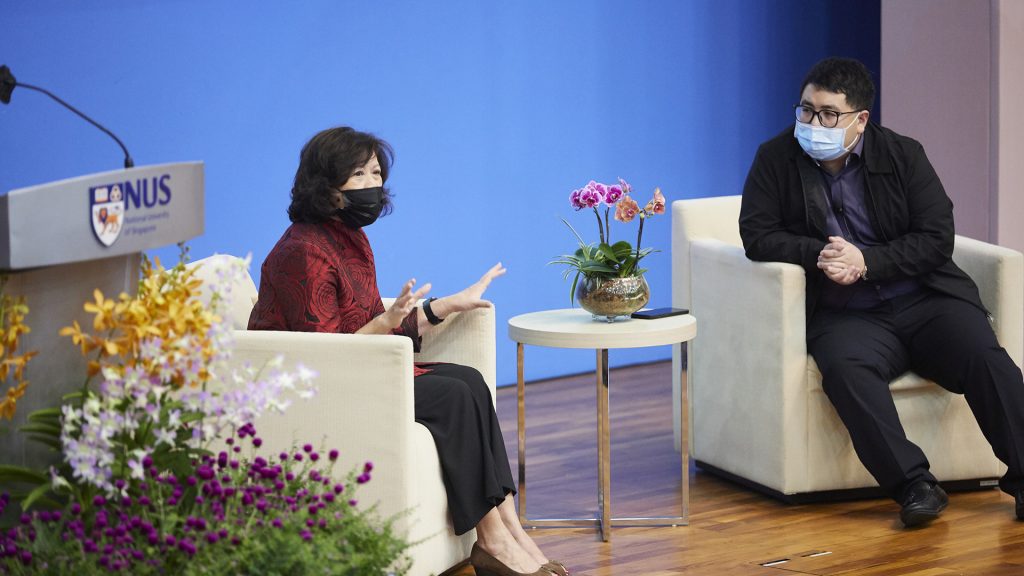
On COVID and climate change
Dr Heyzer’s meteoric rise within the UN is an inspiration for many. As the first woman to serve as the Executive Secretary of the Economic and Social Commission for Asia and the Pacific, she played a critical role in building the economic and social foundations for inclusive and sustainable development.
For her efforts in improving the lives of women and promoting peace and justice, Dr Heyzer was also nominated for the Nobel Peace Prize in 2005.
She received the NUS Eminent Alumni Award in 2011, and the NUS Distinguished Arts and Social Sciences Alumni Award in 2017. Dr Heyzer has been contributing strongly to her alma mater; she was previously on the NUS Board of Trustees before stepping down in 2019, and continues to serve as the co-Chairperson of the NUS Faculty of Arts and Social Sciences Advisory Board.
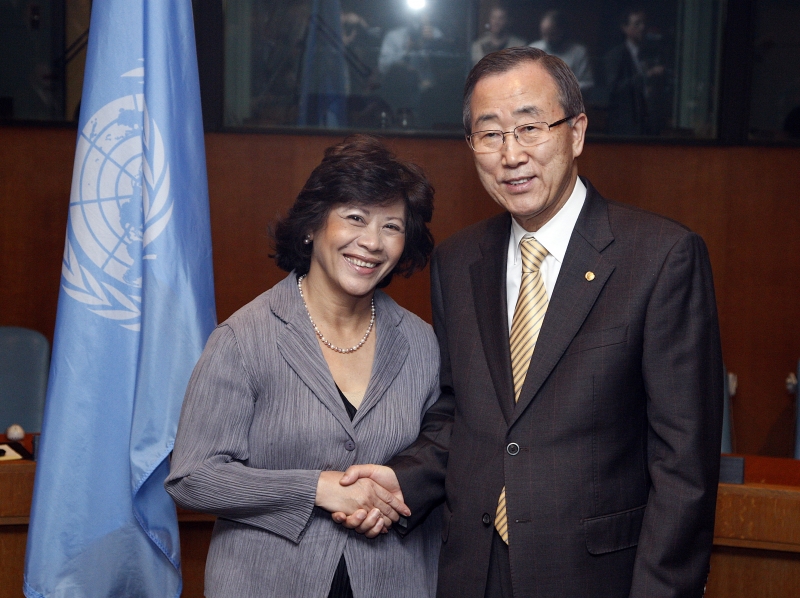
Globally, she continues to undertake missions to countries in conflict to advocate for equitable outcomes, shared prosperity, and progress.
But challenges remain, including the COVID‑19 pandemic and climate change – issues she discussed at the fireside chat with moderator, Mr Soh Yi Da, Vice President of Investor Relations at United Overseas Bank and NUS Outstanding Young Alumnus 2019.
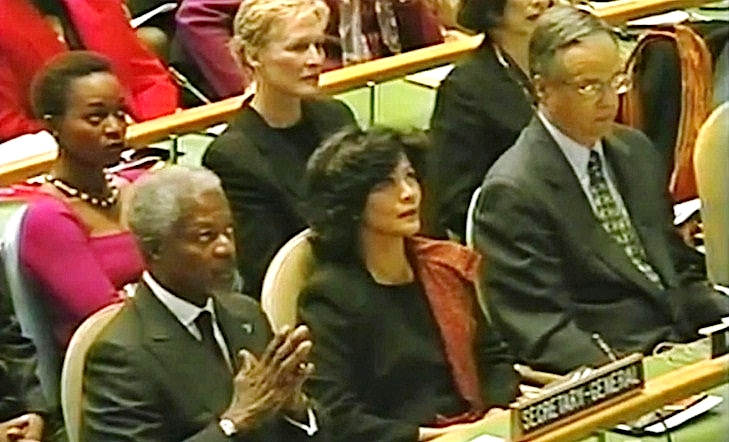
“(The pandemic) has revealed the fragilities in our society. It has actually magnified the vulnerabilities across class and jobs,” she said in response to Mr Soh’s question on vaccine inequality.
“We are connected by our vulnerability, and this pandemic – in a sense – opened up a whole new mindset to look at what global security actually means. We can't function when lives are at risk… no one is safe until everyone is safer.”
While the pandemic is a crisis of a generation, climate change is also one of the other “great divides” that requires collective action.
“Earth is at code red…It requires us to be able to change, do some major transformation in terms of our infrastructure, housing and behaviour,” she noted. “It is something that we have to do collectively.”

Battlefield for a normative future
The Afghanistan conflict continues to fuel Dr Heyzer’s fight to preserve the values of gender equality and social justice.
Citing fears that what happened there could inspire other extremists, the social scientist said the world is a “battlefield for a normative future” – where global organisations need to determine the developments required to achieve desired future outcomes.
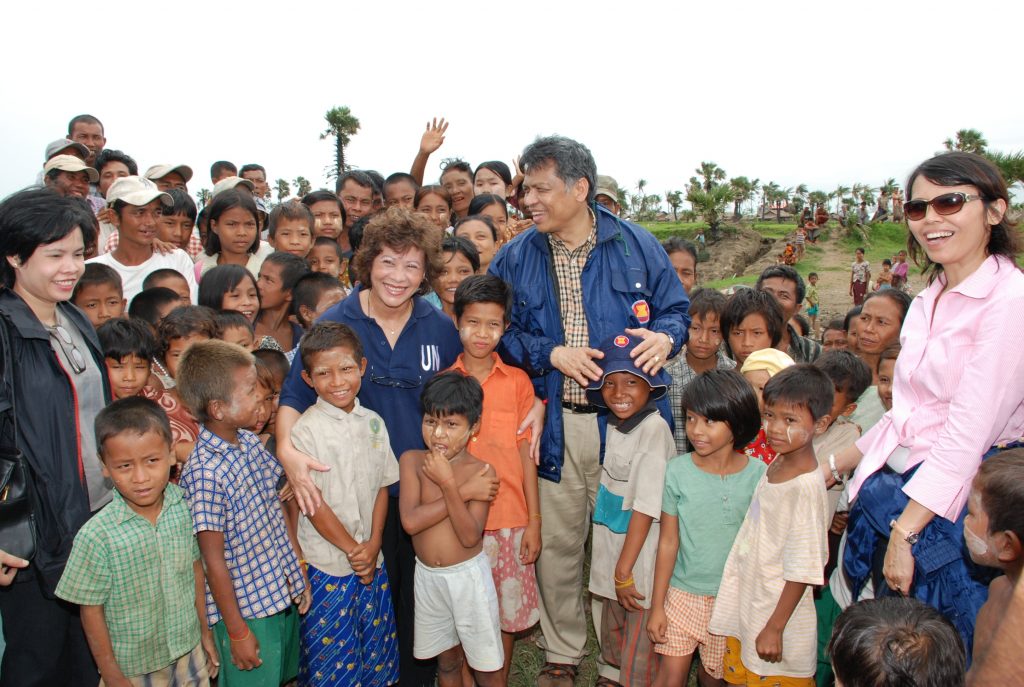
As the Taliban government seeks accreditation in the UN general assembly, Dr Heyzer is working with a team to prepare a letter of demands to the new government.
“What happened to women in that governance system also affected the men who are educated, who want to live in larger freedom,” she said. “It is not about Afghanistan, it is not about women. It is something much larger.”
Explaining how there is no future where half of the population is marginalised, she added: “You cannot have humanity based just on brotherhood. You have to have the synergy between brotherhood and sisterhood, and that community of togetherness is what will make a healthy, human future.”
View a recording of the webinar and fireside chat.
Dr Heyzer’s memoir, Beyond Storms and Stars, can be purchased at the NUS Co-Op.
This story first appeared in NUSnews on 27 September 2021.
.

